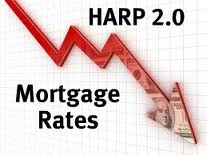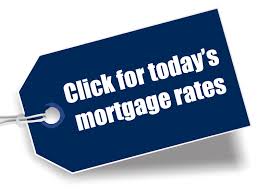 I just got off the phone with a client… She was very happy with me, but extremely pissed at “her” Credit Union. It’s not that her Credit Union is a bad place, it is just that she isn’t a mortgage professional, and the unlicensed application clerk she had been talking to for a mortgage loan was only selling what the Credit Union offers.
I just got off the phone with a client… She was very happy with me, but extremely pissed at “her” Credit Union. It’s not that her Credit Union is a bad place, it is just that she isn’t a mortgage professional, and the unlicensed application clerk she had been talking to for a mortgage loan was only selling what the Credit Union offers.
A good mortgage customer
This client banks at a Credit Union. She wants to buy a home. She believed the Credit Union would be a great place of get a mortgage loan because “they know her”, and “she is comfortable” with them. She is a good credit client, has good income, a low debt ratio, and 10% of her own money for down payment.
The Loan Officer told her she didn’t qualify. He said she needed 20% down to get a loan. She left disappointed, but determined to save more money and come back again
Not All Lenders Offer All Mortgage Loans
What the Credit Union Loan Officer told her was true. She needed 20% down. What he didn’t tell her, was that was only THEIR guideline. He failed to mention that she could have gone to a lot of other lenders, who would have been easily able to offer her a loan right away.
As a sales person, the Loan Officer was selling what he had to offer. Was he wrong in not telling her the competitors may have something different? I’m not sure. But if you go to a VW dealer and ask to see their pickup trucks – which they don’t offer. Is he going to tell you to go to the Ford dealer? Not likely. He is going to try and sell you a VW.
A second opinion
While most mortgage lenders offer the basic mortgage products, a second opinion, especially if you are dealing with a Bank or Credit Union may be wise. I know of many lenders who do not offer VA Loans, or FHA Loans. I know many lenders who do not offer USDA Rural Housing Loans, or community down payment assistance programs like the Minnesota Housing Finance Agency loans.
Furthermore, even if a lender does offer a product, that doesn’t mean the Loan Officer is familiar with it, or will mention it. This is again especially true from banks and credit unions because their Loan Officers do NOT have to be licensed.
Licensed Loan Officers versus Application Clerks
Mortgage lending rules put into place after the real estate crash have many people believing the industry is better than before, and they would be correct. But there are still major gaps. The most sickening to me personally is the educational and licensing gap between the various Loan Officers at Banks, Credit Unions, Mortgage Companies, and Mortgage Brokers.
Loan Officers at Banks, Credit Unions, and mortgage companies owned by a Bank or Credit Union DO NOT need to be licensed. There are no State or Federal testing or educational requirements for depository lender loan officers. Most of these type of Loan Officers are little more than an application clerk.
Loan Officers at non-depository mortgage companies or at mortgage broker companies ARE REQUIRED to have a personal license. They MUST take mortgage education, they must take State and Federal testing, they must have yearly continuing education, and the must be fully vetted for criminal histories.
Verify your Loan Officer
 All Loan Officers must have a tracking number. This number must be displayed on paperwork, business cards, web sites, etc. It is NOT a LICENSE NUMBER.
All Loan Officers must have a tracking number. This number must be displayed on paperwork, business cards, web sites, etc. It is NOT a LICENSE NUMBER.
To verify if a Loan Officer is licensed, or simply an application clerk, go to www.NMLSConsumerAccess.org. You can then enter the Loan Officers Name or Tracking number to see their information.
Once you have the Loan Officers data in front of you, look towards the bottom. It will say either State Licenses/Registrations, or just Registration Name.
If one or more states are listed, this Loan Officer has a license. If you look me up, you’ll see I am licensed in MN and WI. My tracking number is 274132.
If it says Federal Mortgage Originator, this person is NOT LICENSED.
The Bottom Line
Every Loan Officer can go get a license. There is nothing preventing them from getting one. It is just that banks and credit unions are not required to have a license. The fact someone doesn’t have a license doesn’t automatically mean they are bad. But in my humble opinion, I am only going to allow a fully licensed and vetted by the Government Loan Officer handle my largest financial transaction.
Who are you using?
By the way, I was able to qualify my customer… She now had 20%, but we are only using 5% down.
 You need to understand that all lenders underwrite to the same program (Fannie Mae, Freddie Mac, FHA, VA, etc.) , get their money from the same sources, and have to pay the same third party fees (appraisal, credit report, etc).
You need to understand that all lenders underwrite to the same program (Fannie Mae, Freddie Mac, FHA, VA, etc.) , get their money from the same sources, and have to pay the same third party fees (appraisal, credit report, etc).











